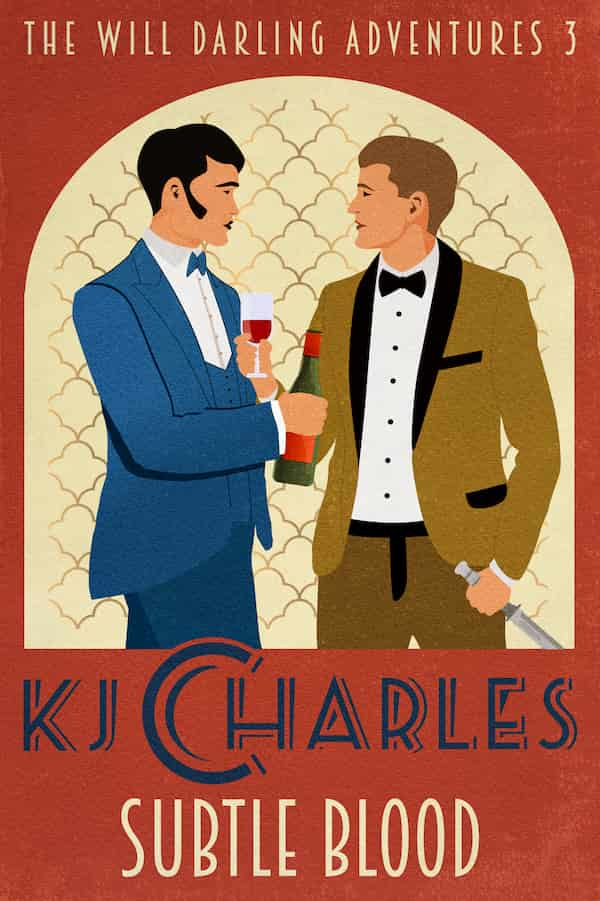I might have accidentally read Subtle Blood again, since I might have accidentally experienced a vivid dream of Will, Kim, Phoebe, and Maisie on a Parisian adventure (cameo by Teddy Molyneaux, of course), and upon waking, might have accidentally been distraught that that book wasn’t going to exist.
But this one does.
It really does. And I realized, I still hadn’t come up with words to talk about it yet, how the first two books of the series encapsulate 2020 for me in a specific and uncanny way, a century past the series’ historical setting, the same kinds of stresses and shifts going on in the world, and now the third installment does the same with 2021.
It IS the 2021 mood for me, in so many respects. Okay, but not okay. Out of the woods, but not yet. Boredom, but chaos. One day at a time. The ground not exactly steady under anyone’s feet.
But also the glimmer of sunlight a long way down the tunnel. The cracks and the fissures. The exhale. The shift. The amount of vulnerability and love packed in the “I’ve wondered where you were hiding the damage” scene is three books worth of payoff and it’s made me cry each time I’ve read it. I’ve never identified with Will more. And yet with all the serious stakes, the book sparkles like Phoebe walking into a room, radiating joy and goodwill.
I don’t know how KJ Charles does it. Much less how she did it during this year. She dug deep, and it shows, an emotional depth that I dare say surpasses even what she’s written before. Just Kim’s transformation alone is gorgeous. Several times I kept thinking, who are you, and what have you done with Lord Arthur Aloysius Kimberly de Brabazon Secretan? In the best way, because he’s still utterly Kim, the true Kim at the core.
I do need to state one final thing: my undying devotion for a book that FINALLY makes the threat of an inherited title the worst possible outcome to be avoided at all costs. She takes the marriage of convenience trope (darling, we must commit ourselves prematurely to secure title, wealth, and societal approval) and does the inverse (Darling, we must rid ourselves of this blight at all costs because it will quite literally be the end of life and love as we know it and the only way we’ll be whole and healthy is to refuse to participate).
I keep thinking, this is what happens when you really queer history. Or, eh, queer the pulp fiction version of it anyway. You get to consider the inverse of things. Disrupt the idea, for one, that love = possession, or that there’s any scarcity in it. Explore the margins. Question the narrative. Rethink a few key assumptions. Step outside prescribed roles. See what else is possible when guided by tenderness and vulnerability, instead of propriety and power.
What other tropes—what other trajectories of history—what other scripts that we follow—could be turned upside down?
